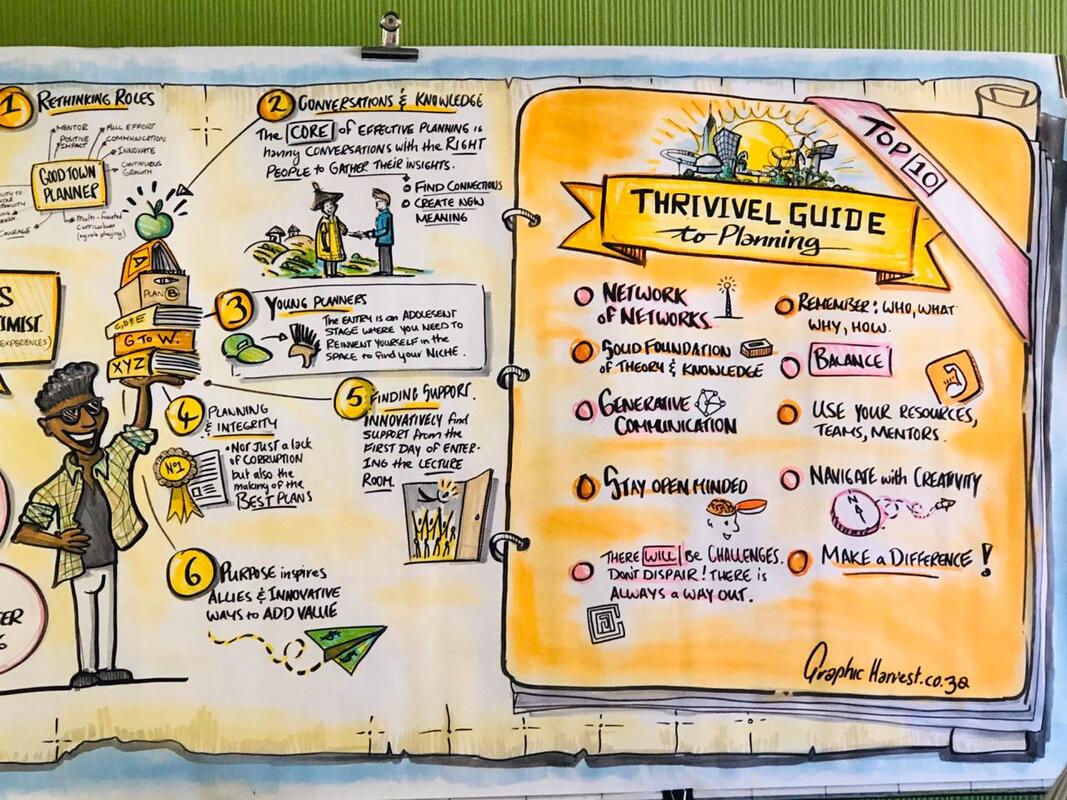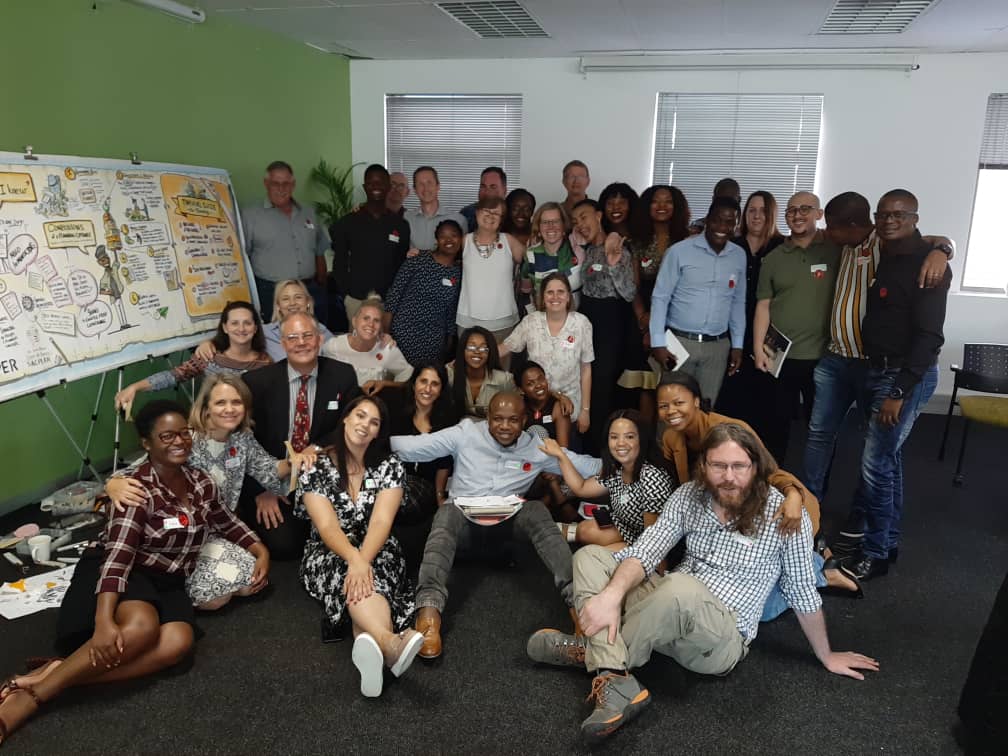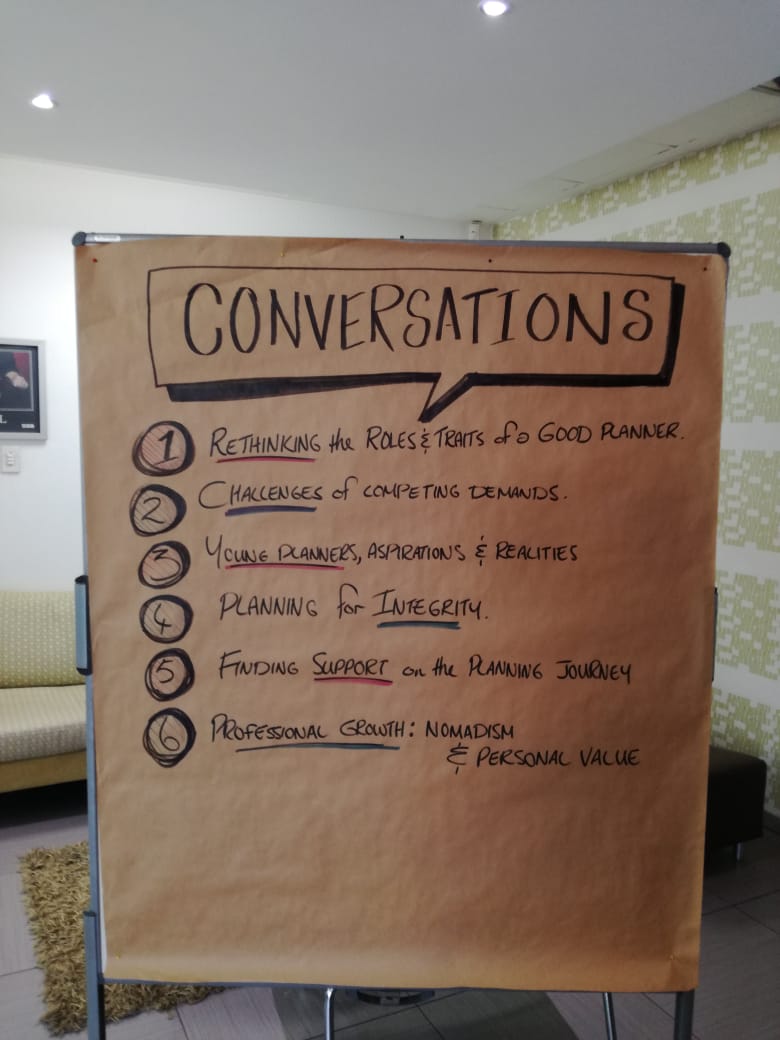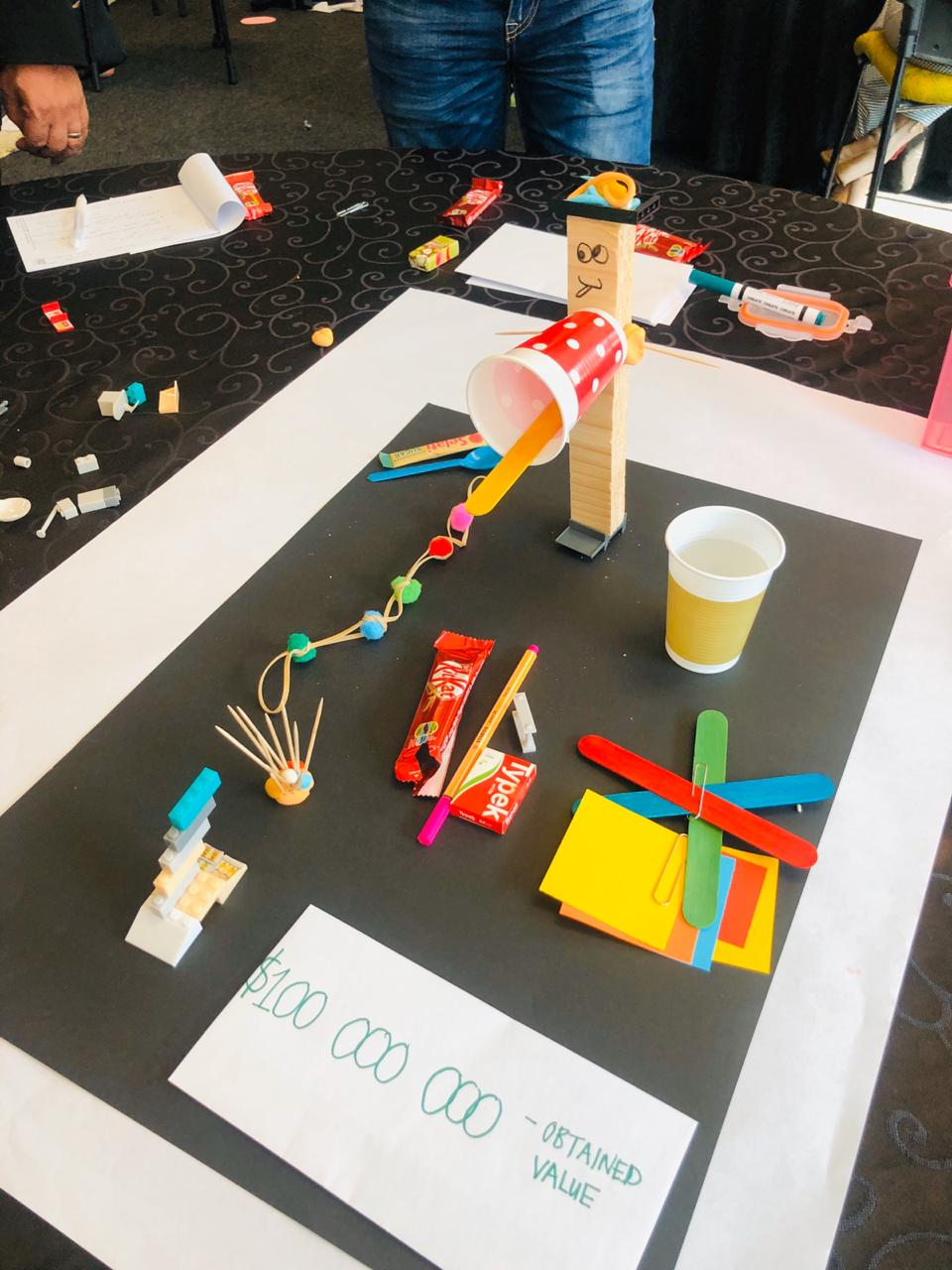 On 28 November 2019, the South African Planning Education Research Project (SAPER), in partnership with SACPLAN, hosted an exciting yet unconventional planning event, an ‘unconference’, in Johannesburg. This event was influenced by three years of research between the University of the Free State (RSA) and University of Birmingham (UK), which focused on South African planning education and the profession at large. The theme that inspired the days' proceedings was termed ‘What I wish I knew'. The aim for the day was to bring together practising planners with the SA SAPER team in a more intimate/relaxed setting and identify and consolidate practice lessons and individual stories. Central to these interactions was the idea of being able to learn from each other's experiences, challenges and perspectives and to find ways to improve the South African planning fraternity. The morning started with an icebreaker, 'Rock Around the Clock,' as a means of setting the tone and enabling multiple and quick introductions between strangers. From there we moved into a session where we used a gallery styled setup to present various quotes from the SAPER research interviews, as well as work from Dr Laura Nkula-Wenz from the Cities of Integrity project at the African Centre for Cities. The intent of the gallery was to provide participants with a chance to walk around and engage with the research on their terms. Each participant was encouraged to place a small note on quotes with which they agreed, or on those which made them uncomfortable. For example, one of the quotes was, “I don’t think all planners out of all professions, out of all the programs are equipped to deal with informality. However, I do think that there is a realisation, it must be across the board, that informality is something we have to plan for and with.” Some of the responses included comments such as: “Informality is the single biggest challenge we face, yet too little teaching and practice relate to it.” “Informality, especially the second economy, cannot be wished away, in post-apartheid planning it needs to be incorporated into design[s] where appropriate.” This approach allowed us to see what participants felt about some of the key issues we had identified in the research, and allowed participants to see what other participants felt about topics; in a sense creating an indirect, anonymous, dialogue between participants. From there the conference continued onto small group sessions of around 7-10 people each, which started with a prepared input from the group facilitator and then allowed for group discussions. Some of the key themes that came from this session included: · Rethinking roles – what is a ‘good’ town planner? Qualities discussed included communication, mentorship, innovation, constant growth, etc. · Conversations and knowledge: It was argued that one of the core qualities of effective planning is having conversations with the right people to gather their insights. · Young planners: Being a young planner was compared to a professional ‘adolescence’ where you need to reinvent yourself to find your niche. · Planning and integrity: This was argued not just to be the absence of corruption, but also the making of the best plans within the constraints of the resources available. · Finding support: Core to effective planning is building networks of support. · Motivation: purpose inspires allies and provides ways to add value. After lunch, we continued with the collaborative effort of designing a planning guide which was facilitated by Dr Elsona Van Huyssteen. We called it the '‘thrivivel guide to planning' with the hope that these lessons will enable people to not just merely survive but thrive within the profession. This was done by creating a physical abstract model of the guide, using everything from paper cups to craft sticks. Some of the key messages that came from this session were, again, a focus on networks, on the necessity of having a solid foundation of theory and practice, and the importance of keeping an open mind. One really pertinent quote was, “there will always be challenges, don’t despair! There is always a way out.” The day concluded with the final touches from the graphic harvester Grant Johnson, who explained the graphic he had produced of the outputs of the event, with which we intend to create a guide for planners on how to thrive in industry (currently being drafted). A personal reflection for me on this event, as a planning educator, was the importance placed on communication and networks. In planning education we tend to focus on knowledge and technical skills; for example, teaching students GIS, data analysis, and topics such as environmental planning, planning law and the like. To some extent, we still teach planning students to be technical experts, professionals who can make plans and write reports. While this is obviously important, the main feedback we seemed to get was that planning was less an exercise in being an expert and more an exercise in being a ‘middle man’ between a number of stakeholders. As such, skills such as relationship-building, leveraging support, communication, mediation and the like are critical. The question then is how do we start to teach young planners these skills, and to what extent are these best learnt in practice, and how should universities be responding to this challenge? What is certain is that the response will need to be a move away from conventional teaching methodologies, and need to adapt skills from disciplines such as social work, psychology and business into planning education. This has the potential to become an exciting area of innovation in planning education. In this vein, I would like to conclude with a quote from one of our earlier interviews with planning practitioners that provides an excellent summary of this idea: “Walking that line between planning fundamentally being about whom, because that who you plan for, that’s who implements your plans, who approves your plans, who funds your plans, who commissions your plans. That’s all people. And the more technical aspect of the discipline understanding the complex network of by-laws. Understanding hard physical limits like flood mains and soil conditions and dolomite. … Because if you a technical expert but you have no social skills, you not going to get anything on the ground. …If you socially very fluent but can’t put together a good technical plan, you gonna get things on the ground but they gonna be lousy. …: So, constantly working as a person between the troubled past and a less troubled future, between a technically determined profession and a socially fluent phenomenon.” Stuart Denoon-Stevens [Special thanks to Geoff Bickford for being MC; Rehana Moosajee (The Barefoot Facilitator) for assisting with program development; the organizing and facilitation team, namely, Rouve Bingle, Thapelo Chacha, Mischka Dunn, Jennilee Kohima, Lucia Leboto, Tokelo Nche, Emmie Smit, Thandeka Mlaza-Lloyd, Thomas Stewart, Refilwe Khabe and Elsona van Huyssteen, for your hard work; Grant Johnson for the graphic harvesting; the NRF and the ESRC / Newton Fund for funding this event (funding codes 105399 and ES/P00198X/1 respectively), SACPLAN for partnering with us, Dr Laura Nkula-Wenz from the Cities of Integrity project at the African Centre for Cities for the quotes facilitation and your general inputs; the wider SAPER team for their ongoing support, in particular, my co-PI, Dr Lauren Andres; our presenters for preparing inputs for the planning optimist session; and all the attendees for making this event the success it was.] 
0 Comments
|
AuthorThe SAPER blog is written by different members of the SAPER project team. Archives
March 2020
Categories |
Proudly powered by Weebly


 RSS Feed
RSS Feed